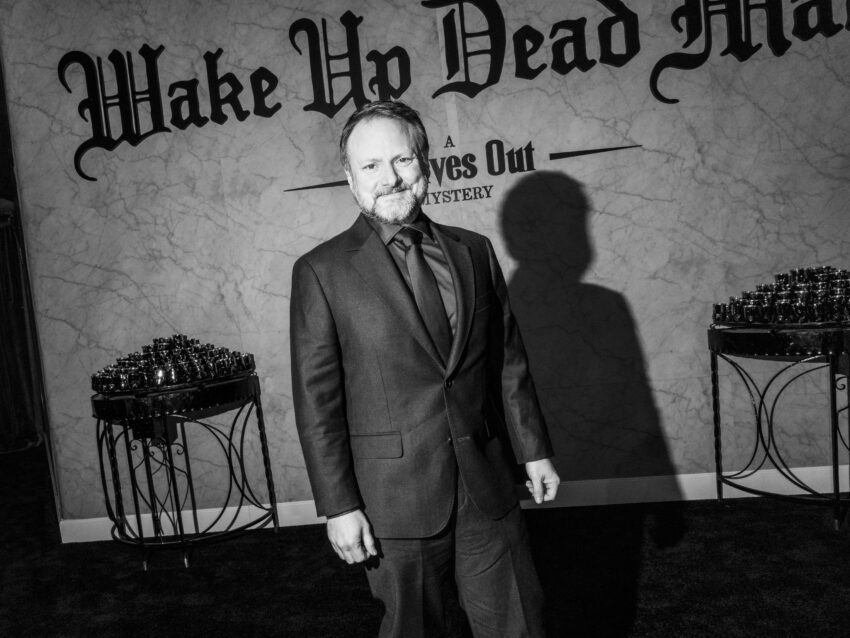
rian johnson doesn t have a plan Rian Johnson reveals that there was no overarching plan guiding the evolution of the “Knives Out” series, which has now expanded into a diverse range of narratives and settings.
rian johnson doesn t have a plan
Evolution of the “Knives Out” Series
Since its inception, the “Knives Out” franchise has captivated audiences with its unique blend of mystery, humor, and social commentary. The first film, released in 2019, introduced viewers to a classic whodunit scenario set in a sprawling New England estate. The film’s success not only revitalized the murder mystery genre but also showcased Johnson’s ability to weave intricate plots with engaging characters. Following this, the sequel, “Glass Onion: A Knives Out Mystery,” took the story to a luxurious Greek island, where a tech mogul hosted a murder mystery party reminiscent of the opulence associated with figures like Elon Musk.
With the third installment, titled “Wake Up Dead Man,” Johnson has opted for a darker tone and a more confined setting. This film is set within the walls of a small-town church, presenting a locked-door mystery that delves into themes of faith, morality, and the divine. The shift in atmosphere signifies Johnson’s willingness to explore different facets of storytelling, moving from the lightheartedness of the previous films to a more somber examination of existential questions.
Rian Johnson’s Approach to Storytelling
In a recent interview, Johnson emphasized that his creative process does not adhere to a rigid blueprint. “I actually think it’s very important that I just follow my instinct for each one,” he stated. This instinct-driven approach allows him to experiment with various genres and themes, ensuring that each film feels fresh and distinct. Rather than being constrained by a predetermined narrative arc, Johnson embraces the freedom to explore new ideas and settings, which has become a hallmark of the franchise.
Distinct Styles and Themes
Each installment of “Knives Out” has showcased a unique style, reflecting Johnson’s versatility as a filmmaker. The first film was characterized by its clever dialogue, intricate plotting, and a star-studded cast, including Daniel Craig as the charismatic detective Benoit Blanc. The film’s success was attributed to its ability to blend traditional mystery elements with contemporary social issues, such as class disparity and family dynamics.
In “Glass Onion,” Johnson expanded the scope of the narrative, incorporating a more extravagant setting and a larger ensemble cast. The film maintained the franchise’s signature humor while introducing new layers of complexity, including commentary on technology and privilege. This evolution demonstrated Johnson’s ability to adapt and innovate while remaining true to the core principles that made the first film a success.
Now, with “Wake Up Dead Man,” Johnson is venturing into darker territory. The choice of a church as the primary setting is significant, as it invites exploration of themes related to faith, morality, and the human condition. The locked-door mystery format adds an element of suspense, challenging both the characters and the audience to confront deeper philosophical questions. This shift in tone suggests that Johnson is not afraid to tackle more serious subject matter, further broadening the scope of the series.
Implications for Future Installments
Johnson’s instinctual approach raises intriguing questions about the future of the “Knives Out” franchise. As he continues to explore different genres and themes, it is unclear what direction the next installment might take. This unpredictability is part of what has drawn audiences to the series, as each film offers a new experience while retaining the core elements of mystery and intrigue.
The lack of a master plan may also reflect Johnson’s desire to keep the creative process organic. By allowing his instincts to guide him, he can respond to the cultural zeitgeist and engage with contemporary issues in a way that feels authentic. This flexibility may lead to unexpected narratives that resonate with audiences on multiple levels.
Stakeholder Reactions
The response from stakeholders, including fans and critics, has been largely positive. The success of the first two films has created high expectations for “Wake Up Dead Man,” and early reactions suggest that Johnson’s departure from a formulaic approach has been well-received. Fans appreciate the diversity of storytelling and the willingness to tackle complex themes, while critics have praised Johnson’s ability to maintain suspense and engage viewers intellectually.
Moreover, the franchise’s success has implications for the broader film industry. In an era where sequels and franchises often follow predictable formulas, Johnson’s approach serves as a reminder that innovation and creativity can yield rewarding results. By prioritizing storytelling over rigid adherence to a predetermined plan, Johnson sets a precedent for future filmmakers seeking to break free from conventional constraints.
Conclusion
As the “Knives Out” series continues to evolve, Rian Johnson’s instinct-driven approach to storytelling remains a defining characteristic. Each film offers a unique experience, reflecting Johnson’s willingness to explore diverse genres and themes. With “Wake Up Dead Man,” he delves into darker territory, challenging audiences to confront deeper philosophical questions while maintaining the suspense and intrigue that have become synonymous with the franchise.
The future of “Knives Out” remains uncertain, but Johnson’s commitment to following his instincts suggests that audiences can expect more innovative storytelling in the years to come. As the series expands, it will be fascinating to see how Johnson continues to navigate the complexities of human experience through the lens of mystery and suspense.
Source: Original report
Was this helpful?
Last Modified: November 25, 2025 at 7:36 pm
0 views















